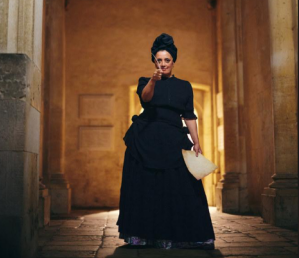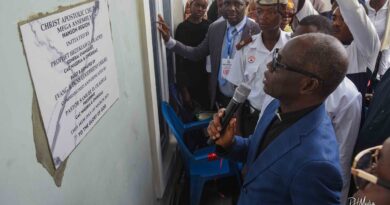1723 Letter of Enslaved Virginian Recreated in Grenada Play
 1723 Letter of Enslaved Virginian Recreated in Grenada Play
1723 Letter of Enslaved Virginian Recreated in Grenada Play
A compelling new one-woman performance, “Incidents in the Life of An Anglican Slave,” brings to life a rare 1723 letter written by an enslaved Virginian pleading for freedom. The play, written and performed by London-based Caribbean writer Desirée Baptiste, examines the Anglican Church’s historical involvement in chattel slavery.
The original letter, discovered in the Church of England Archives at Lambeth Palace Library, was addressed to the Archbishop of Canterbury and King George I. In it, the anonymous enslaved writer recounts the brutality and abuses she endured while seeking liberation, highlighting the complicity of the Anglican Church in slavery.
Baptiste’s monologue transforms this historical document into a dramatic verse performance that captures the resilience, wit, and strength of the enslaved woman. She explained that while the character’s journey begins in Virginia, it extends to Barbados, where the horrors of Caribbean plantations operated by the Anglican Church become starkly evident.
ALSO READ: How to Use Media to Share the Gospel in a Modern World
The Grenada performance will take place tomorrow, Nov. 12, at St George’s Parish Church at 6 PM, followed by a question-and-answer session allowing audiences to engage in discussion about the Church’s role in slavery and its legacy in the Caribbean. Baptiste hopes the session will encourage reflection and community dialogue.
This play has toured widely in the Caribbean and the U.K., with performances at St. George’s Anglican Cathedral in St. Vincent, Codrington College in Barbados, Lambeth Palace Library, Cambridge’s Jesus College, Oxford’s All Souls College, and the Edinburgh Fringe Festival. Codrington College itself sits on land once used for sugar plantations operated by the Church of England’s missionary arm, the Society for the Propagation of the Gospel in Foreign Parts (SPG), whose enslaved workers were branded with the word “Society.”
Through her verse and monologue, Baptiste gives a centuries-old voice renewed power, allowing the enslaved woman’s story to confront history and inspire discussion in spaces historically tied to her oppression.
Content Credit: Moyosola Oni
Image Credit: Google .Com



